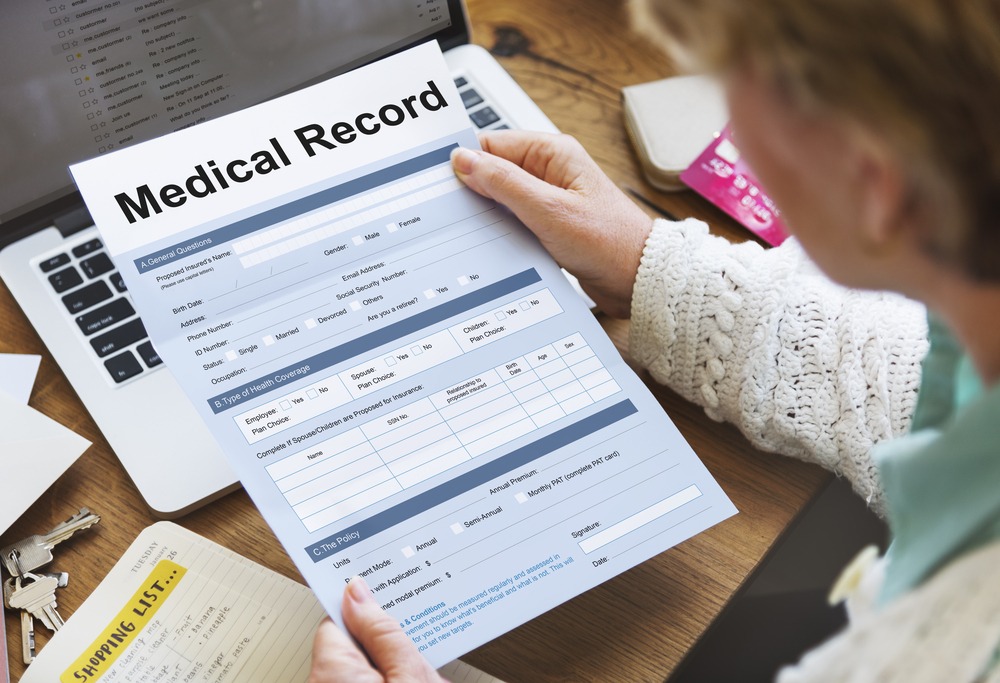 You are entitled to hassle-free access to your medical records.
You are entitled to hassle-free access to your medical records.
Jump To:
How Can I Obtain My Medical Records If I Have Questions About My Treatment?
The Health Insurance Portability and Accountability Act (HIPAA) gives you control over your medical records. That means you can obtain your medical records when you need to and you can shield them from others. This includes paper records and charts as well as electronic health records.
It is a good idea to review your records periodically, such as each time you visit the doctor. By doing so, you learn what information is out there about you and can keep tabs on your health. Because you know your body better than anyone, keeping tabs on your health data over time can alert you to any changes that you should bring up with your physician.
If you believe you have been a victim of medical negligence, you will need to obtain your medical records before you file for medical malpractice. This includes diagnoses, lab results, doctor’s notes, billing information, and other health data.
What Is the Easiest Way to Obtain Copies of My Medical Records?
The fastest and easiest way to get copies of your medical records is to contact your provider. For instance, if you are seeking orthodontic records, contact your orthodontist’s office. If you want to look at the lab values from your latest thyroid screening, get in touch with the office of your endocrinologist or internist.
Most providers have an easy, straightforward form you can fill out to request access to your medical records. They can provide you with a copy of this form in person or via email, mail, or fax. You simply fill out the form with the requested information, provide proof of your identity, and you should receive immediate access to your records.
If your provider does not have a standard form, you can receive access to your records by making a written request. Include in the letter your identifying information, proof of identity, and the specific records you want to access.
What If My Doctor Is Retired or No Longer in Practice?
A common challenge for patients is attempting to obtain medical records from doctors or healthcare providers who have retired, moved, or are no longer at the same practice.
If the practice where you received care is still open, you should be able to retrieve your records there even if your specific physician has moved on. You would simply contact the practice and fill out a records request the same as if your doctor still practiced there. As long as you can provide proof of your identity, the practice should still have your records on file.
If the practice itself is no longer in business, obtaining your records becomes slightly more challenging, but in most cases, you can obtain them by taking the following steps.
Contact Your Local Medical Society.
Tell them the name of your doctor and the name of the practice and see if they know where your records are being stored.
Contact Your State Medical Association.
If that does not lead you to your records, get in touch with the state medical association. They can often help you track down records from doctors or practices no longer in operation.
Contact Your Local Hospitals.
Finally, if you are still having issues, make a list of the hospitals in the area and call them one by one. At some point, your doctor might have registered to treat patients through a local hospital, and if so, the doctor likely went through an extensive formal process to receive permission. The hospital then likely knows where the records of patients treated by that doctor are located.
What If My Doctor Will Not Grant Me Access to My Medical Records?
In rare cases, a doctor can legally deny access to certain medical records. This situation occurs most commonly with mental health records. By law, your doctor can deny access to certain mental health records if they believe that letting you view your records might endanger your physical health or well-being.
If a healthcare professional decides to deny you access to your medical records for any reason, they must provide you with a written record detailing their decision.
If a doctor or facility tries to deny you access in an attempt to conceal altered hospital records, you could have grounds to file a malpractice claim.
How Can I Talk to an Attorney About My Rights?
The medical malpractice lawyers at Medical Malpractice Help can help you defend your rights as a patient. If you have any questions or concerns about the care you have received or the accuracy of your medical records, we want to help.
Legal Information - News Articles

New Mexico Jury Finds Albuquerque Hospital Negligent; Awards Family $7.75 Million Michael Webb waited as long as he could. The pain in his knee was not going away. Finally, in December 2011 he decided to have surgery performed. After the procedure, complications forced Webb in to the intensive care unit (ICU) at the Presbyterian Hospital
Read More
Florida Supreme Court Rules Secret Ex Parte Interviews of Medical Malpractice Plaintiffs’ Doctors Unconstitutional On November 9, 2017, the Florida Supreme Court issued its highly anticipated decision in Weaver v. Myers, No. SC15-1538 (Nov. 9, 2017). In Weaver, the Supreme Court struck two provisions pertaining to secret, ex parte interviews with plaintiffs’ healthcare providers in connection
Read More